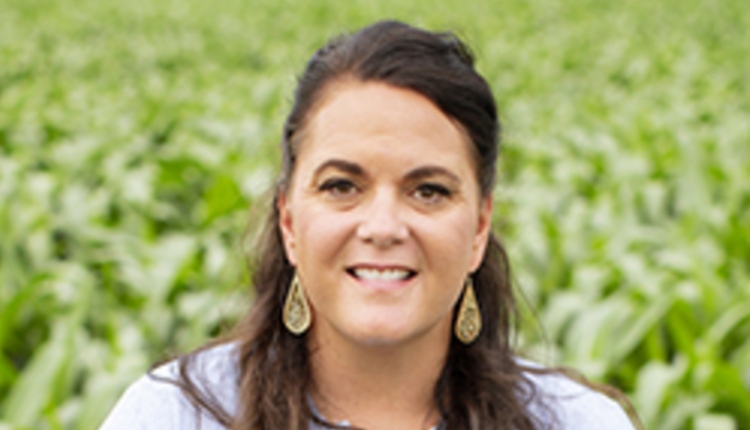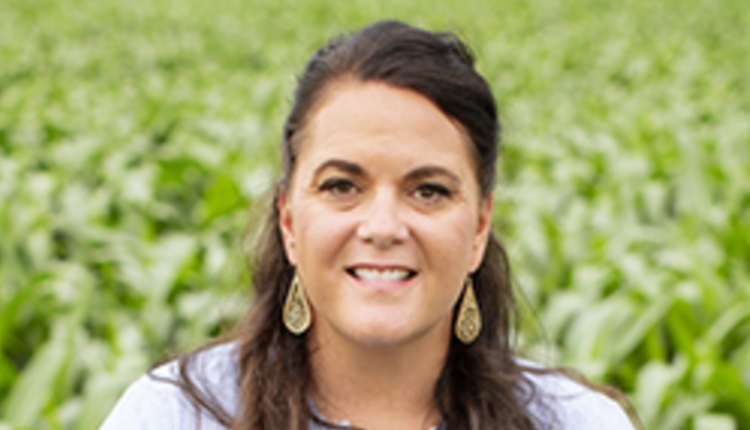
It will be an image that I’ll never be able to forget.
On a cool July morning, my husband received a call from his mother, screaming, “Fire!” When I ran outside, I nearly dropped to my knees, witnessing a wall of flames, intense heat, and the sound of our cows bellowing. Thankfully, my husband and father-in-law ran toward the flames and were able to get the 200 heifers that were inside out.
We helplessly watched our heifer barn, commodity barn, two skid loaders, and all our hay, straw, cottonseed, and bedding burn. It took six fire departments nearly 11 hours to put the fire out. A week later, the pile was still smoldering.
With help from family and friends, we moved those 200 heifers to four local farms. The hours and days that followed are a blur; days and nights are intertwined.
It is so easy to think about everything that we did wrong or that we could have done to prevent the fire. We never will know for sure, but we believe the fire started from some wet hay. Adding 1,500 straw bales the night before certainly didn’t help.
I try to remind myself, and our whole family, that we did some things right that day. I thought it might be helpful to share with you the things that we did well amidst our disaster in case you find yourself in a similar situation.
Solid communication. At 2:30 a.m., I waited down by the entry to our farm for our first shift of employees to arrive to work. The number of flashing lights and first responder vehicles were overwhelming. It wasn’t easy to get into the farm.
We wanted our employees to know it was safe to come to work and learn from one of the owners what had happened, instead of speculating or hearing incorrectly. They went to work, feeding calves and milking, as if it was any normal day. And, honestly, that is what had to happen. Cows still had to be milked. Calves still had to be fed. Having a point person to talk to employees, media, and more was key.
Don’t overthink. We had so many people call or text, saying they had a place to house our heifers. Some people didn’t quite understand that we were dealing with young calves, 3 months to 8 months of age, so we couldn’t just put them out to pasture. They needed to be somewhat close, to be monitored daily. But with the generous outpouring of support, the need for quick decision making to move cattle was also vital.
My husband and I went to look at some places at 10 a.m., and an hour later, trucks and trailers were hooked up and ready to load cattle. We couldn’t overthink this process or get too picky about perfection because in all honestly, nothing is perfect when it comes to a disaster. Cattle had to be moved that day. Overthinking it would cost precious time and add more unneeded stress.
Update policies. We are thankful that we had sent our insurance company an updated inventory list the first of the year. Doing our homework in the “off-season” was essential.
My advice is to check your insurance policies and make sure you understand the coverage you have chosen. Hindsight is 20/20, but underinsuring could result in a quick exit of the dairy industry.
Pace yourselves. The road ahead is long, and it will be a marathon. The day before the fire, we all had worked 16-plus hours and had gotten two to three hours of sleep before the call came. Thanks to adrenaline, on the day of the fire, we all clocked a 20-hour day. You can only operate on survival mode for so long, though. Rest, eat, and stay hydrated. This has been crucial in the days and weeks that followed.
Extend grace, not your fist. Everyone copes differently as they go through a crisis. Some might be withdrawn. Some might yell. Some might work like crazy. Try to realize that everyone is fighting the same fight, but we all cope differently. Sometimes letting someone vent, cry, or talk is the best medicine you can offer them.
Accept help. I think this might be one of the hardest lessons. Many people will offer a helping hand, but they look to you to tell them what to do.
In the days that followed, people offered to trim weeds and mow grass, and one friend even helped our kids clip their showstring for our county fair that occurred the week after the fire. After losing all of our bedding material and feed, my husband asked friends to help find hay or straw, and even help move cattle. These needs were urgent. I asked many people to check back with us in a week. To be honest, when we were in crisis mode, we could only see so far.
While I wish I could get the image of the fire out of my head, it has given me so many more reasons to be thankful. I’m especially grateful for the things that did go right that July morning. We feel so blessed that no person or animal was injured and are undoubtedly grateful for the outpouring of support we have received.
Around the Kitchen Table is a regular column in Hoard's Dairyman. The author and her husband work in partnership with family on a 500-cow dairy in East Moline, Ill.






